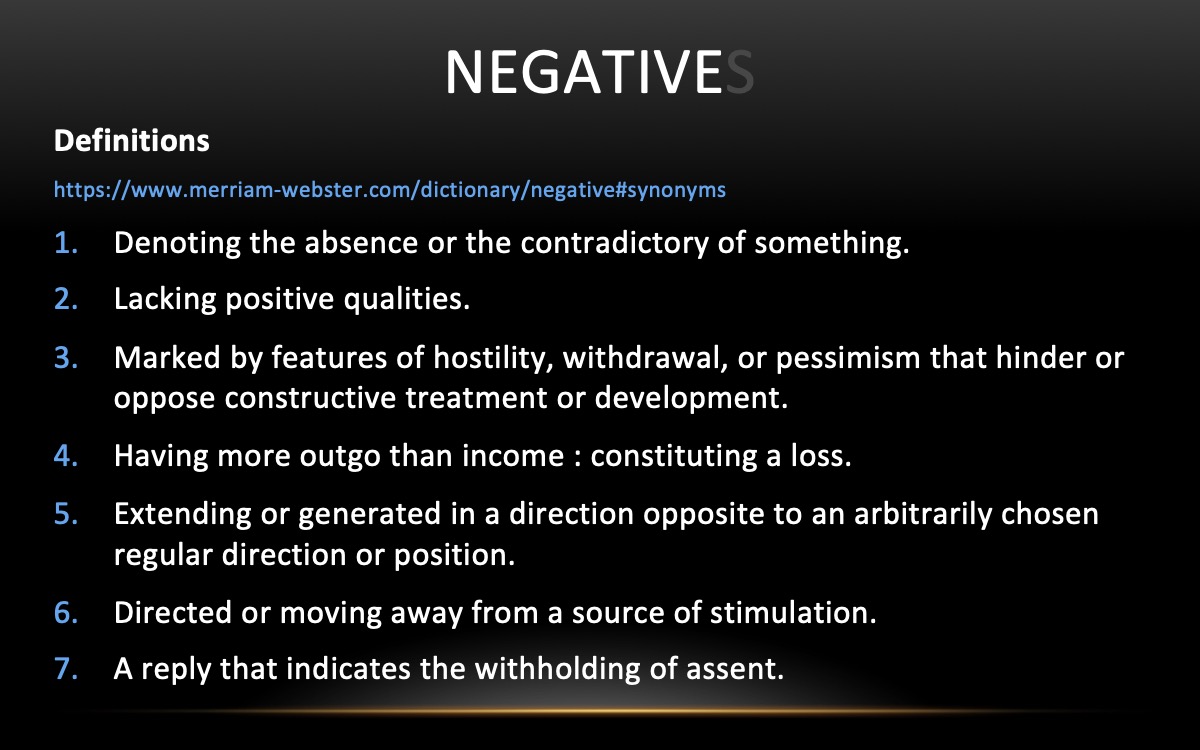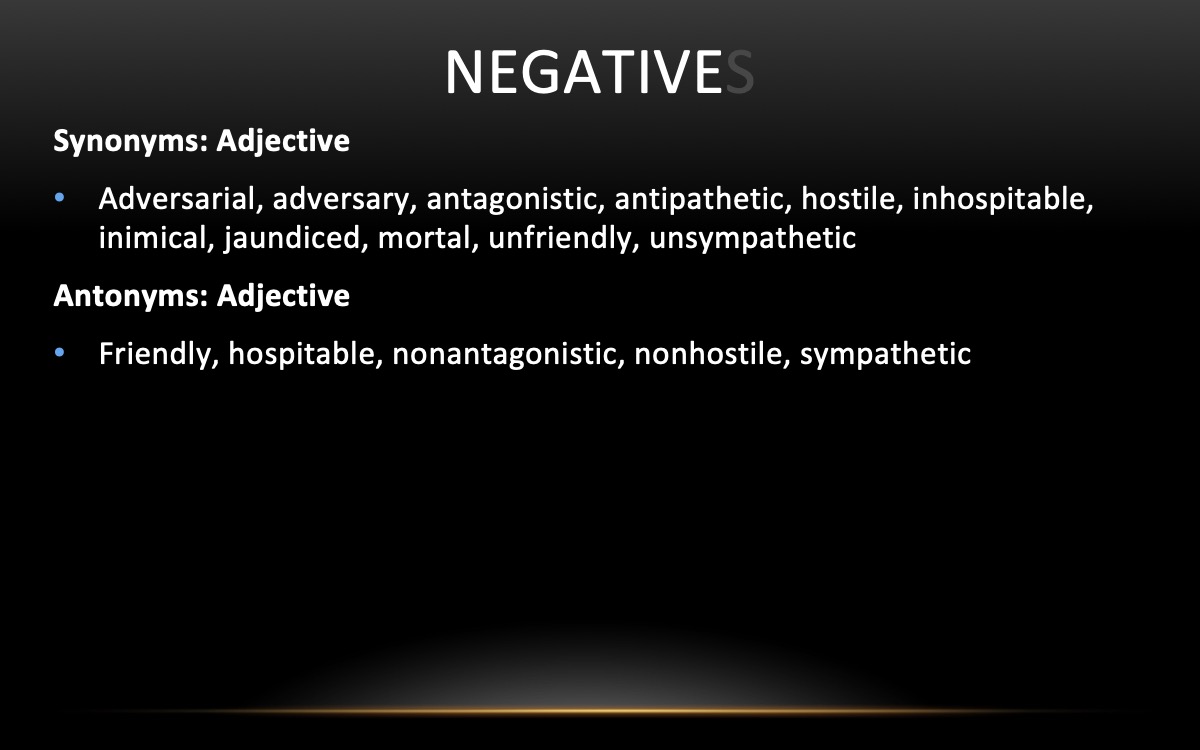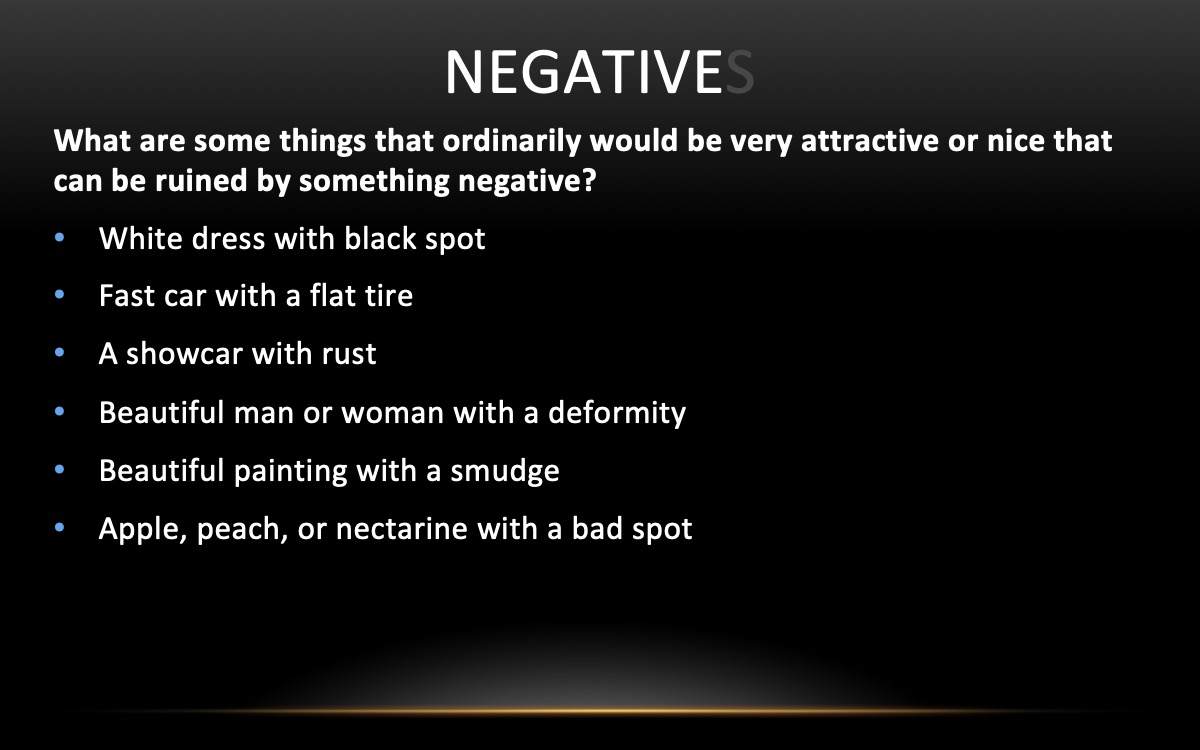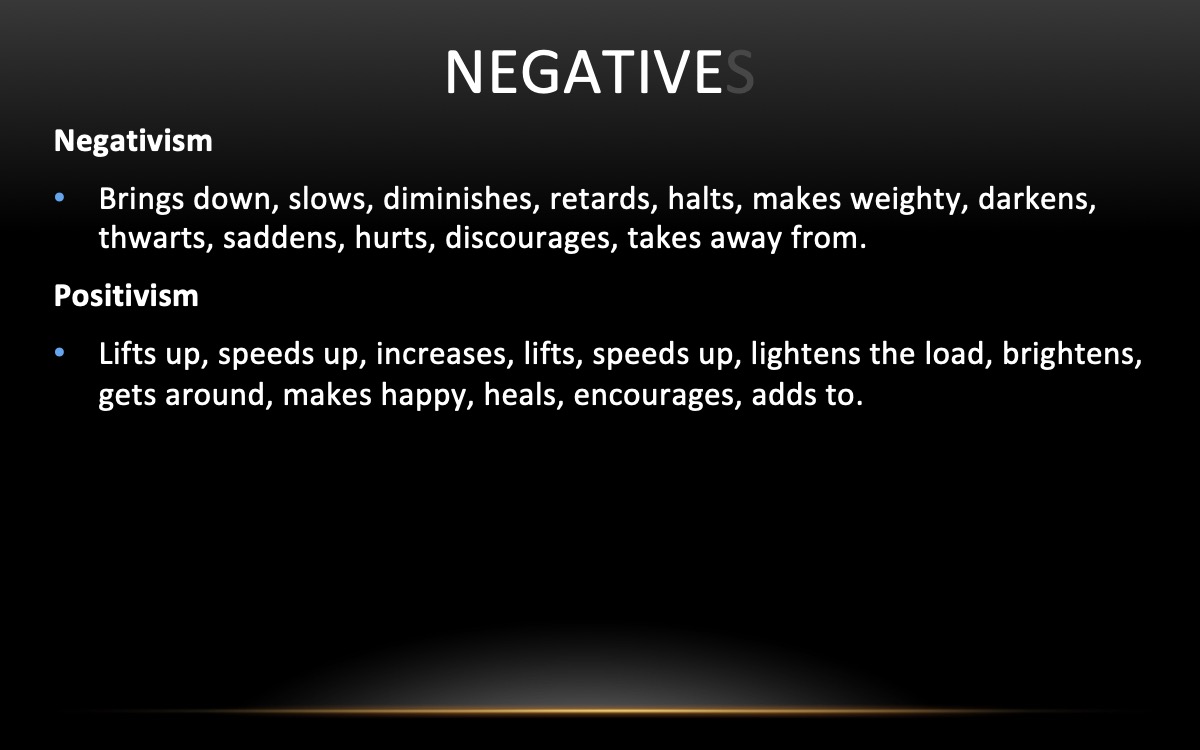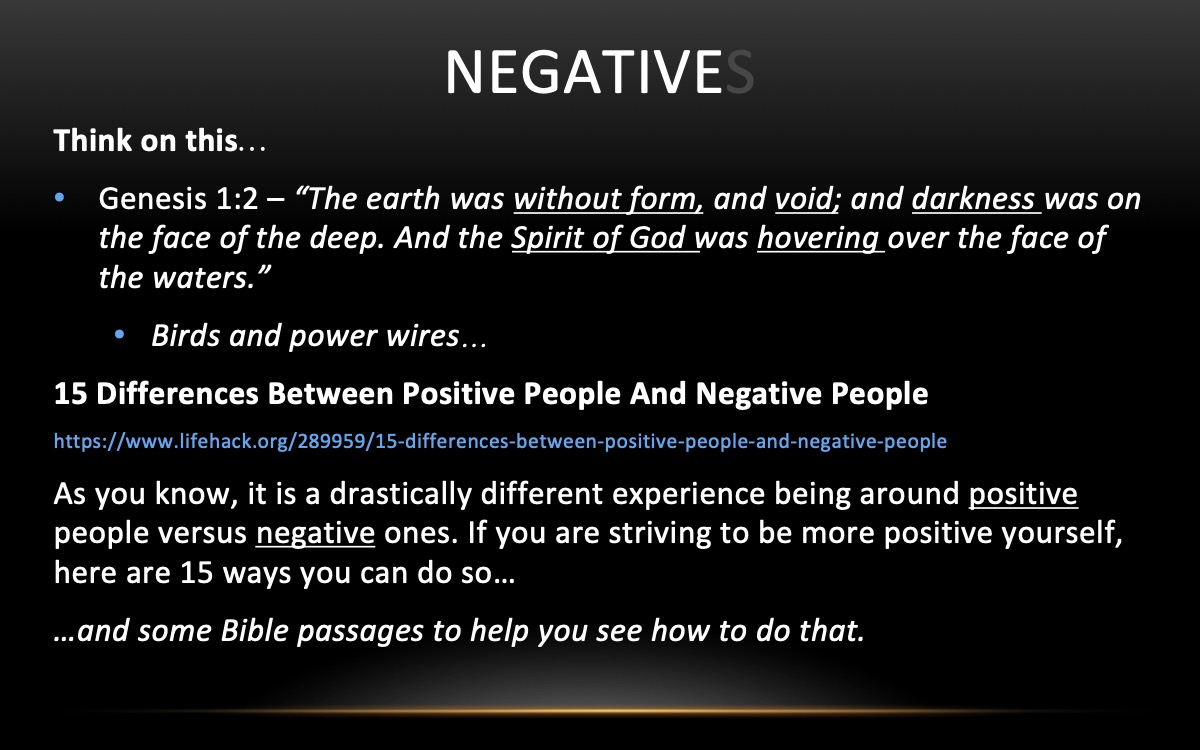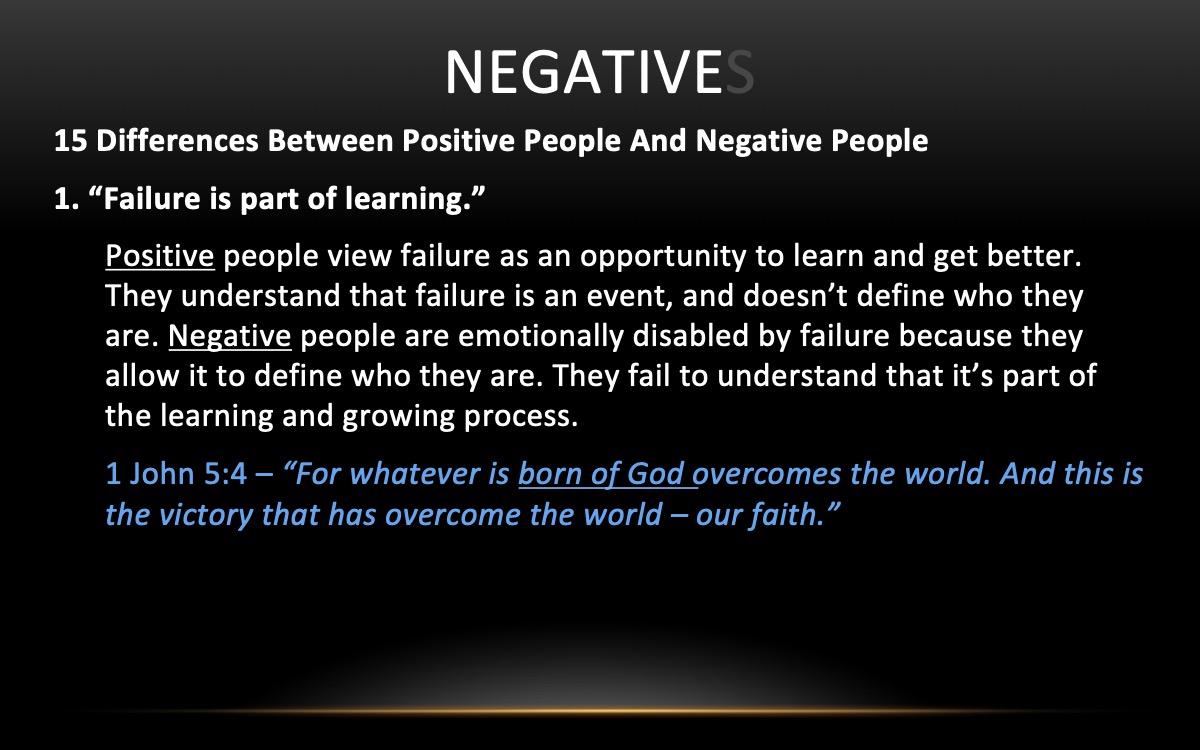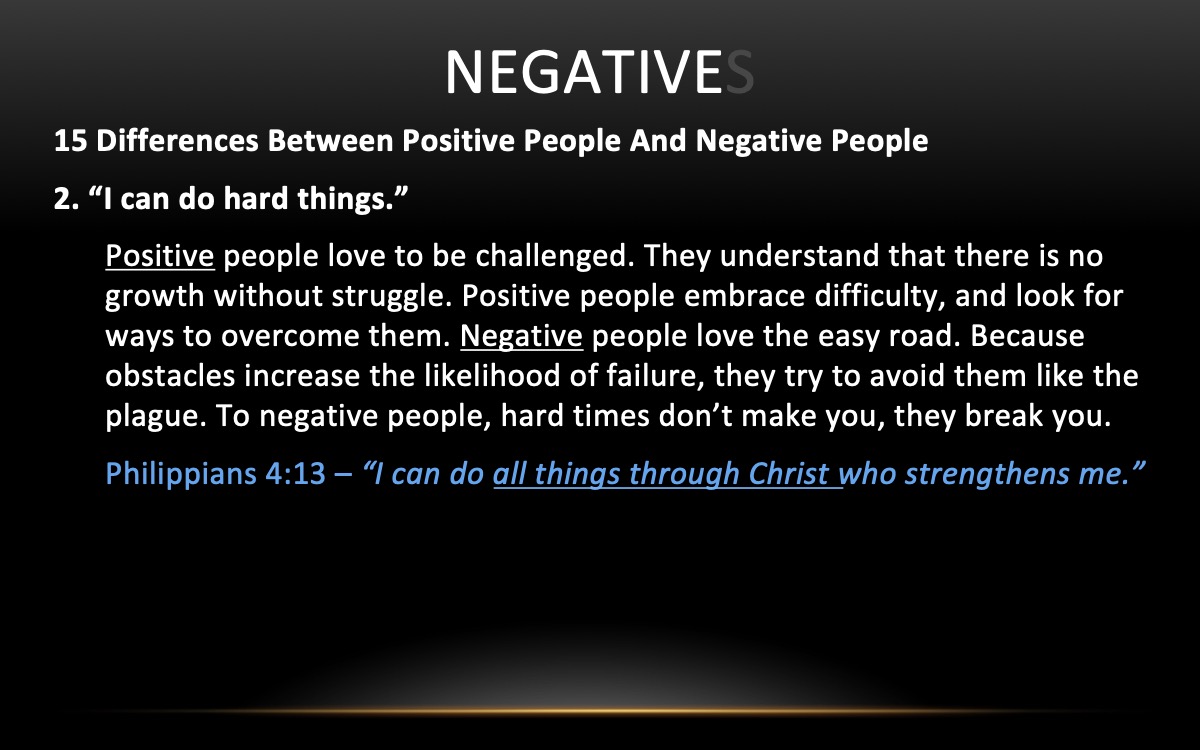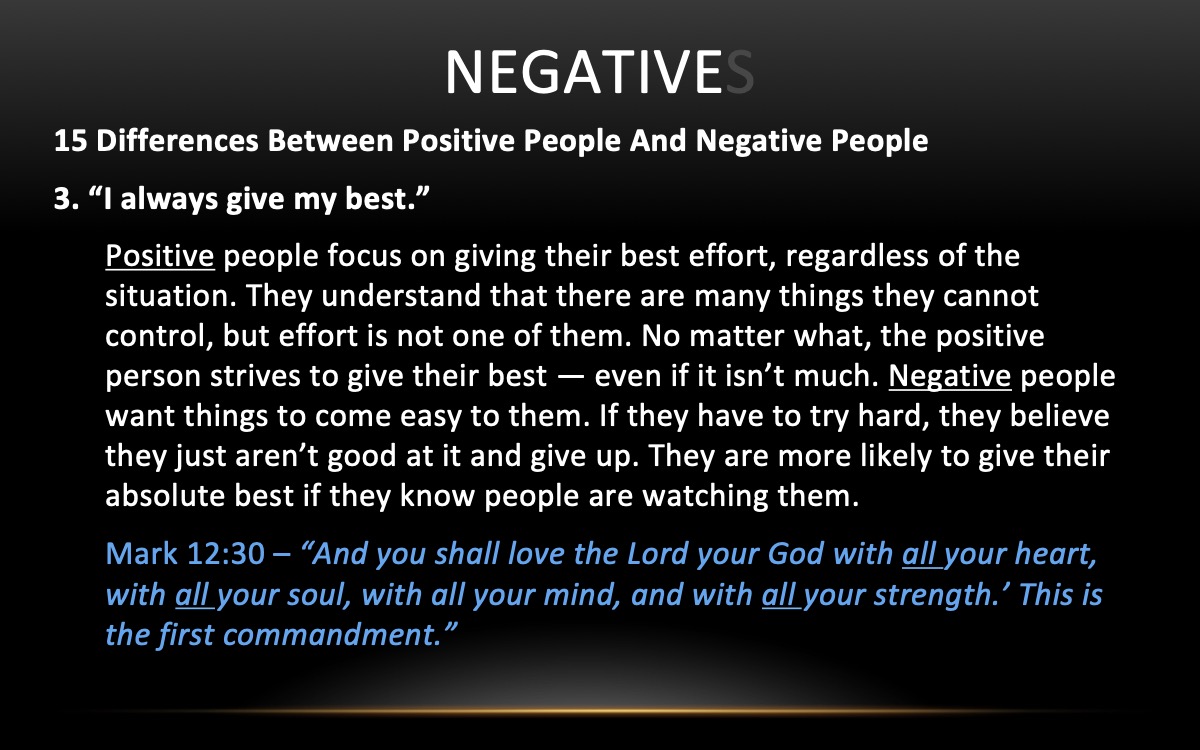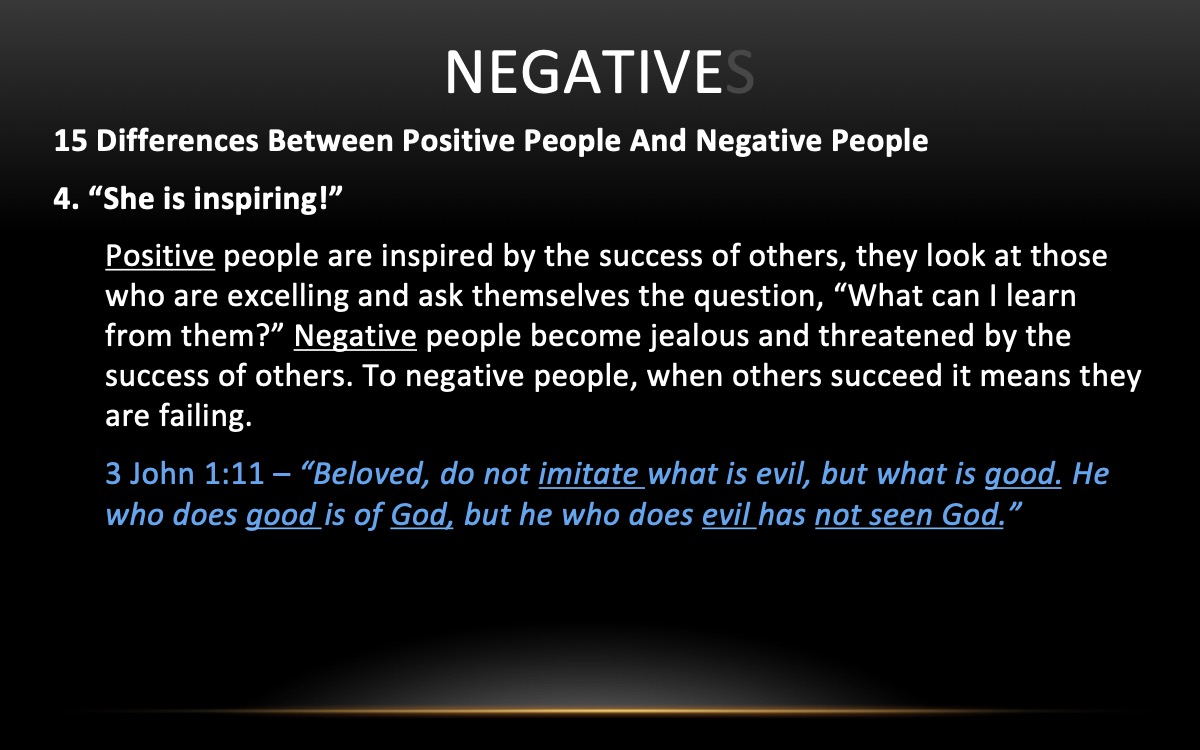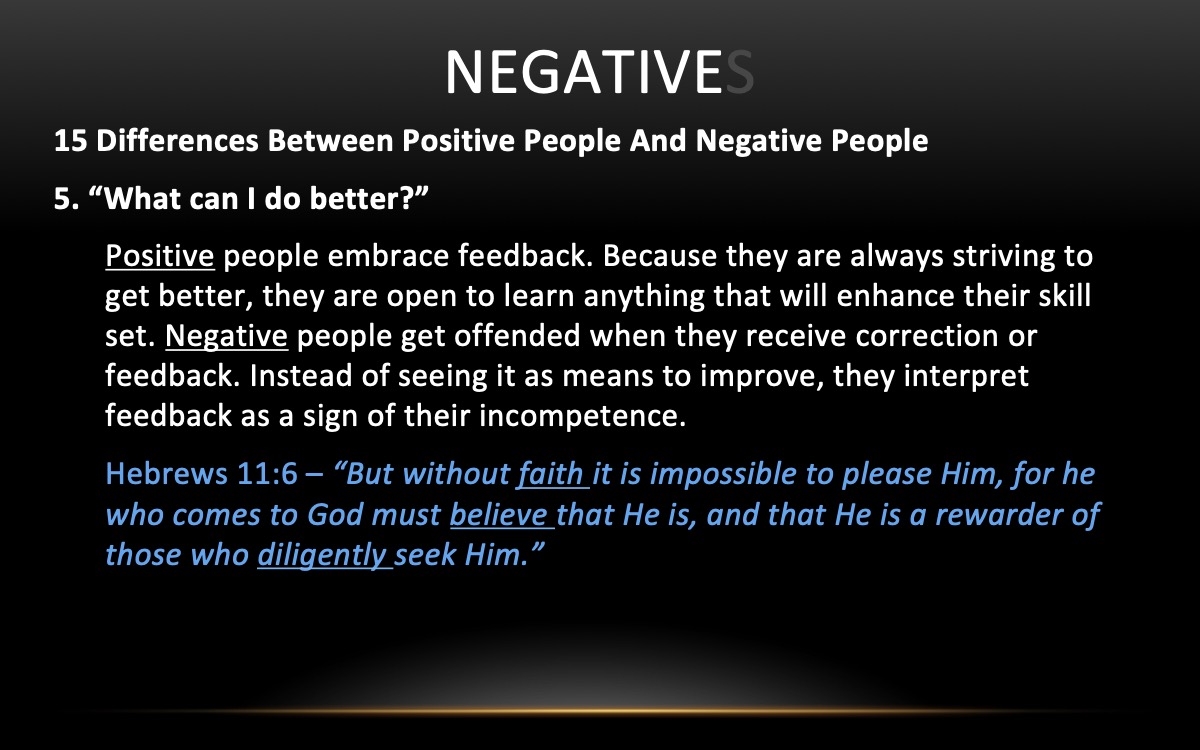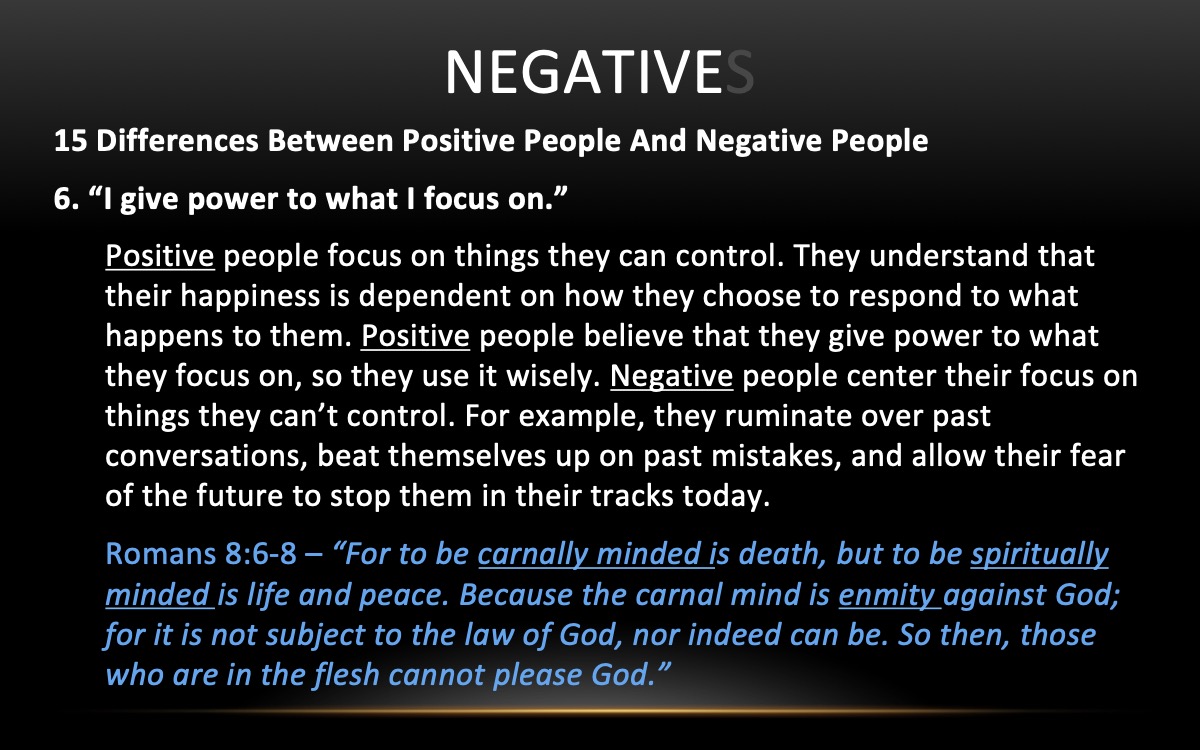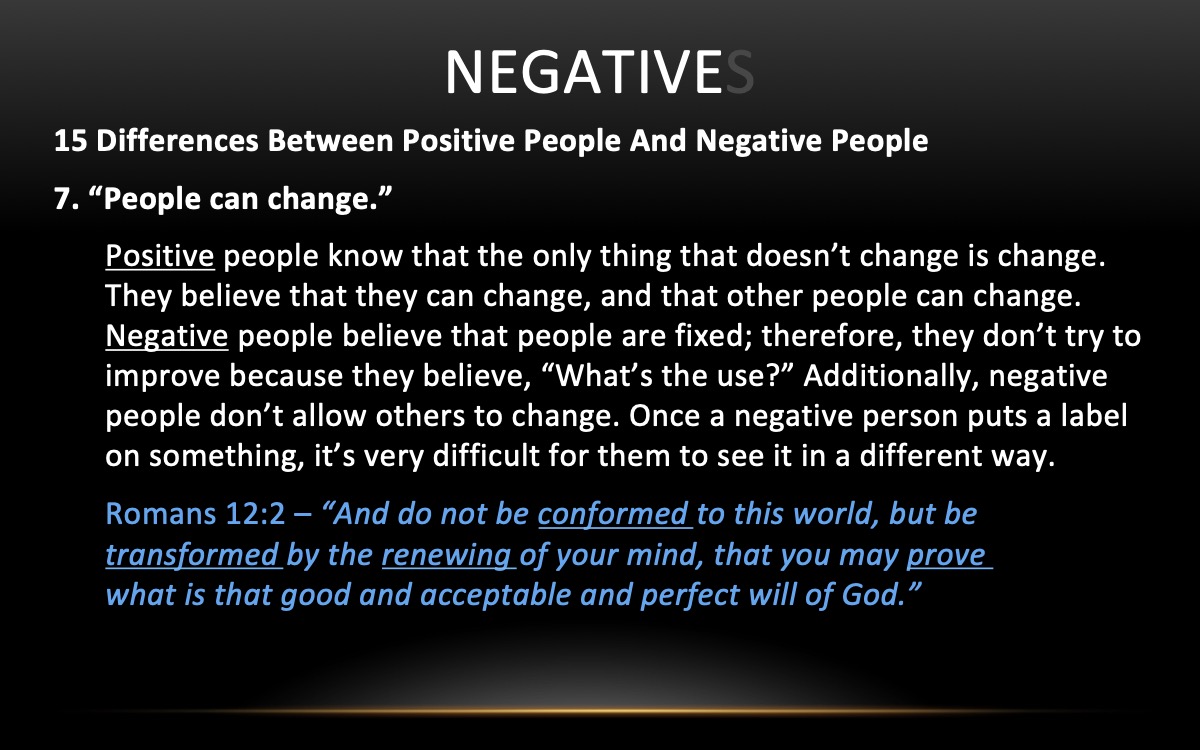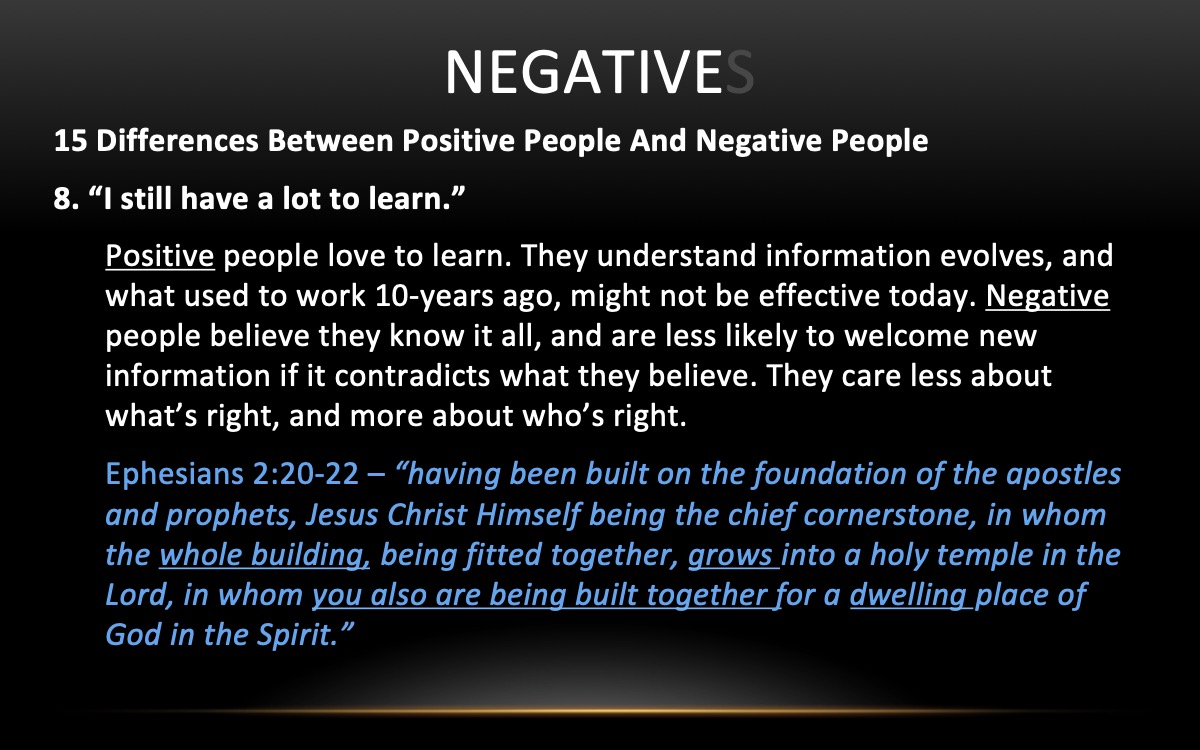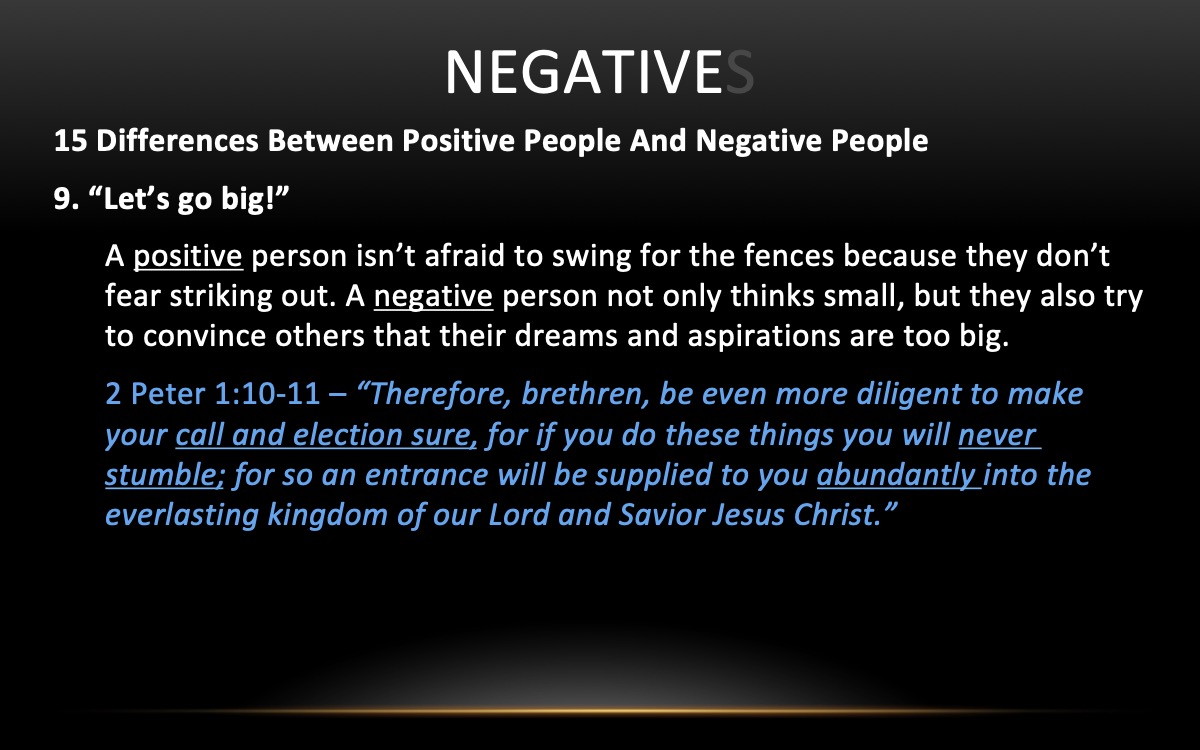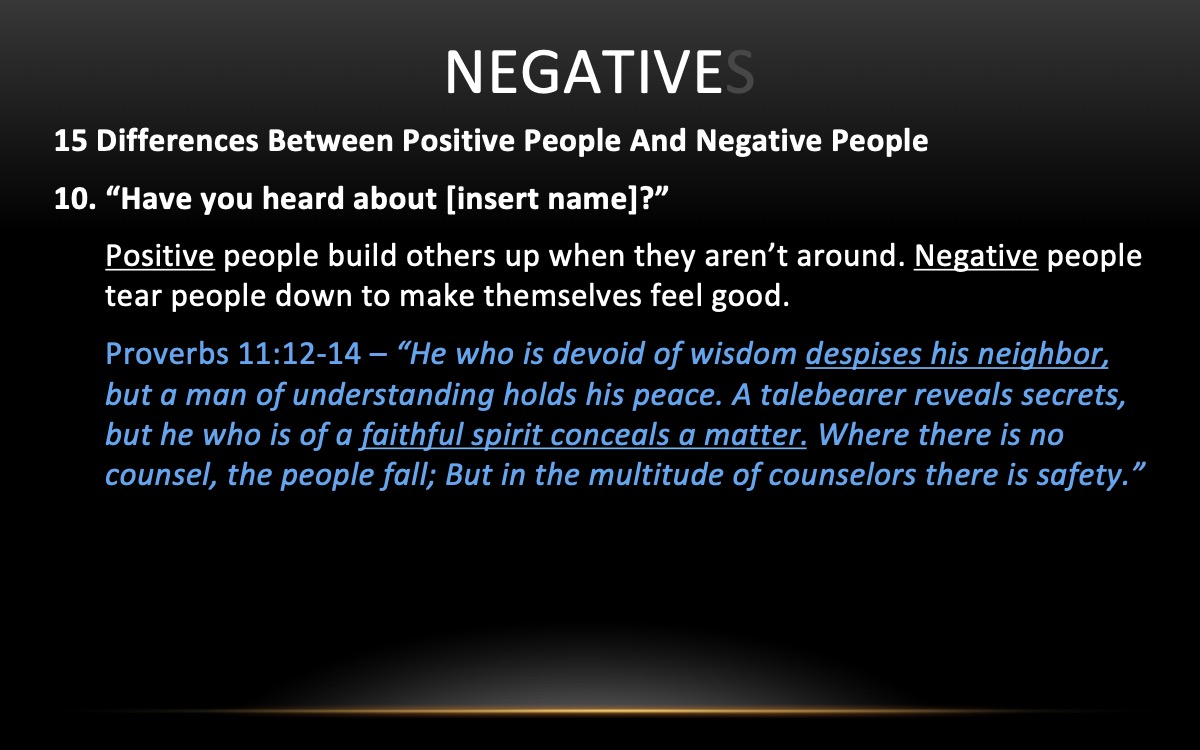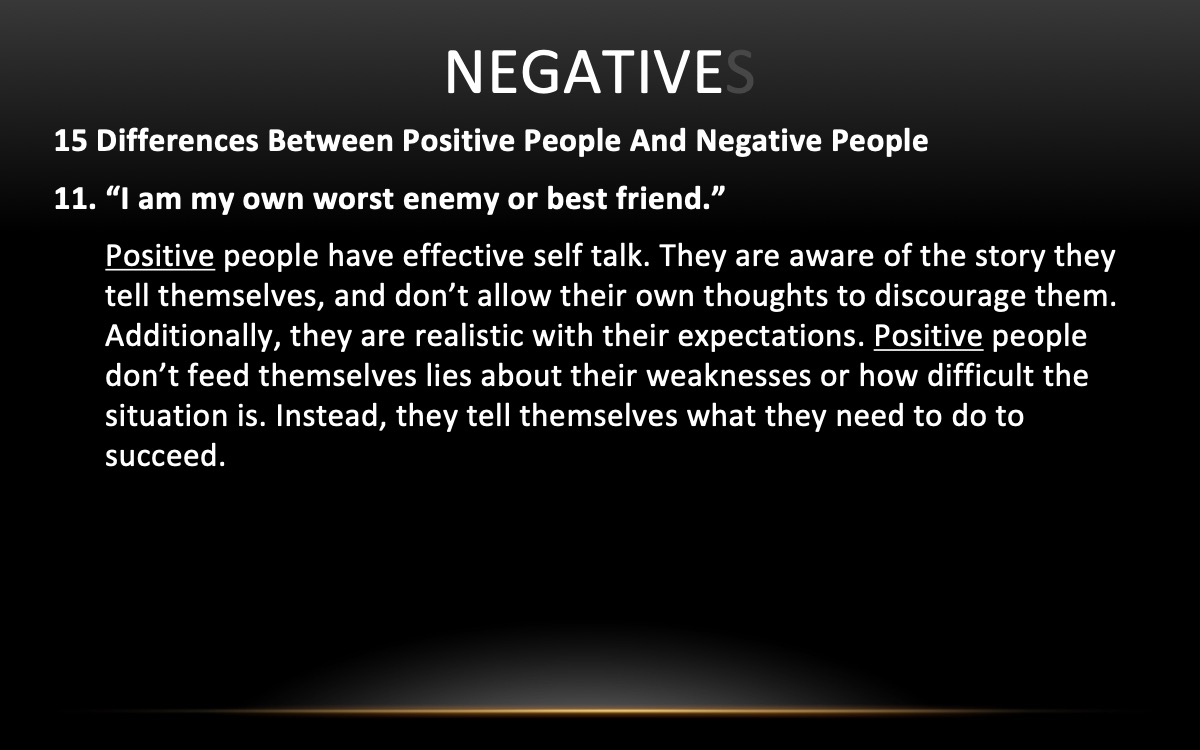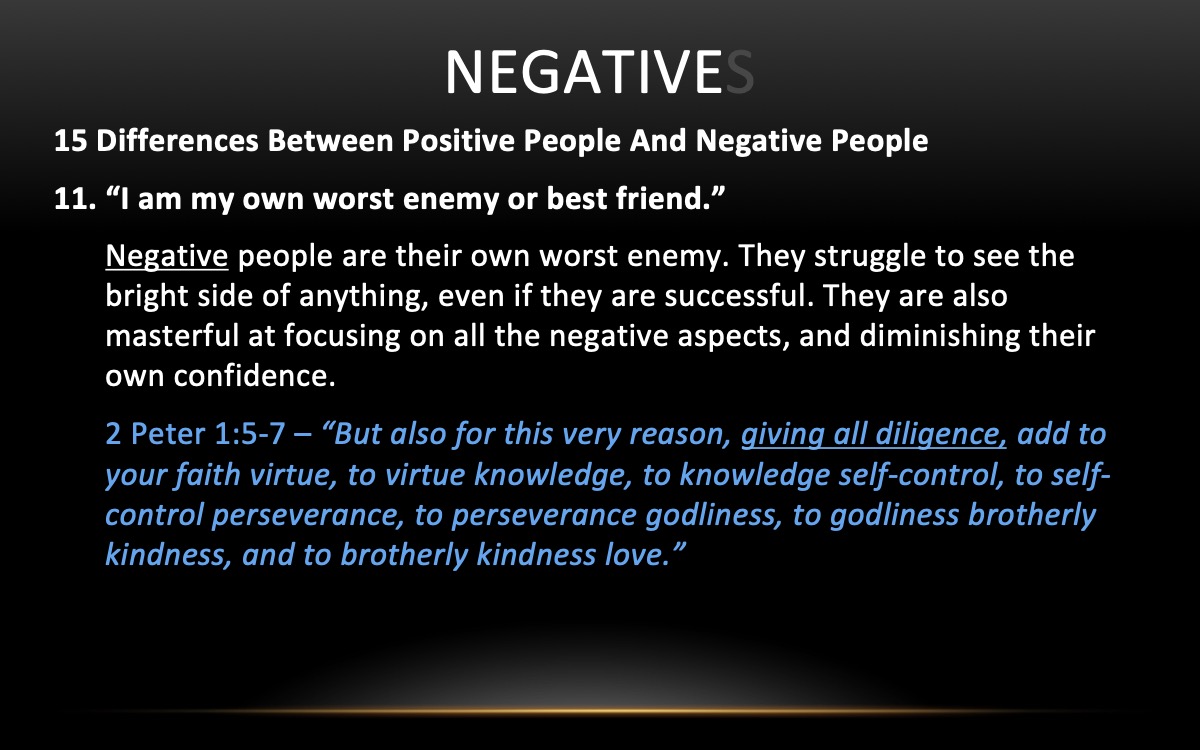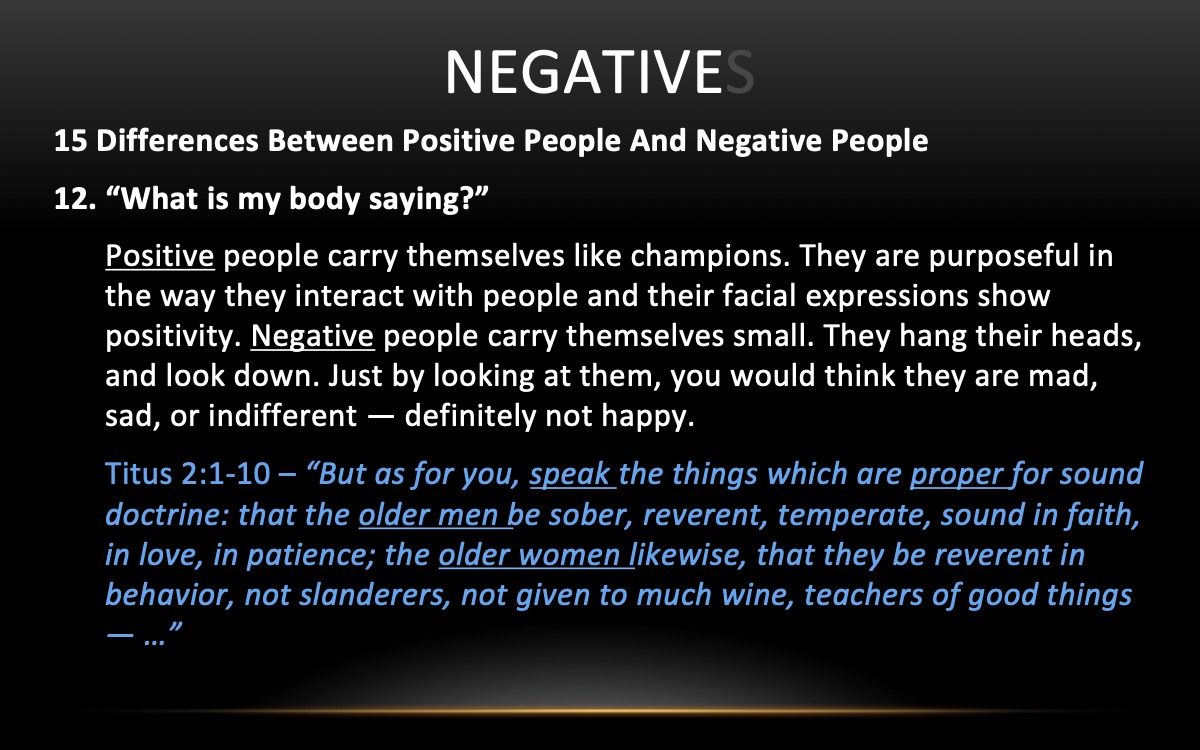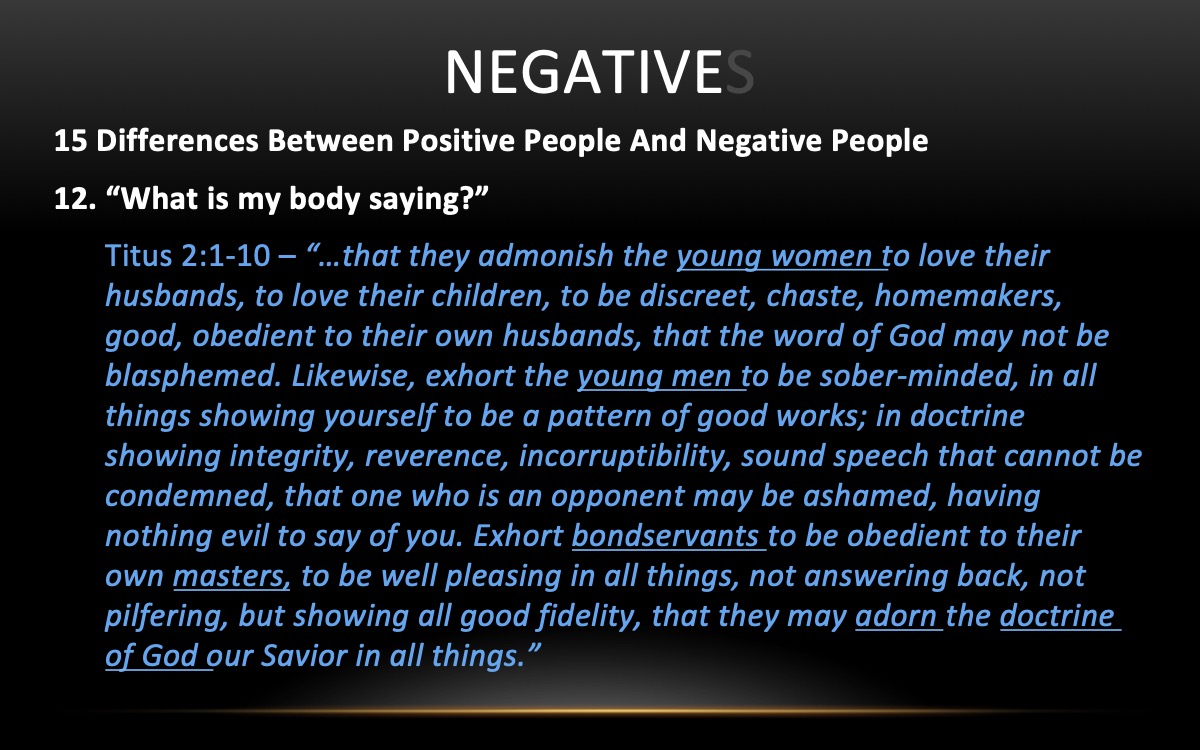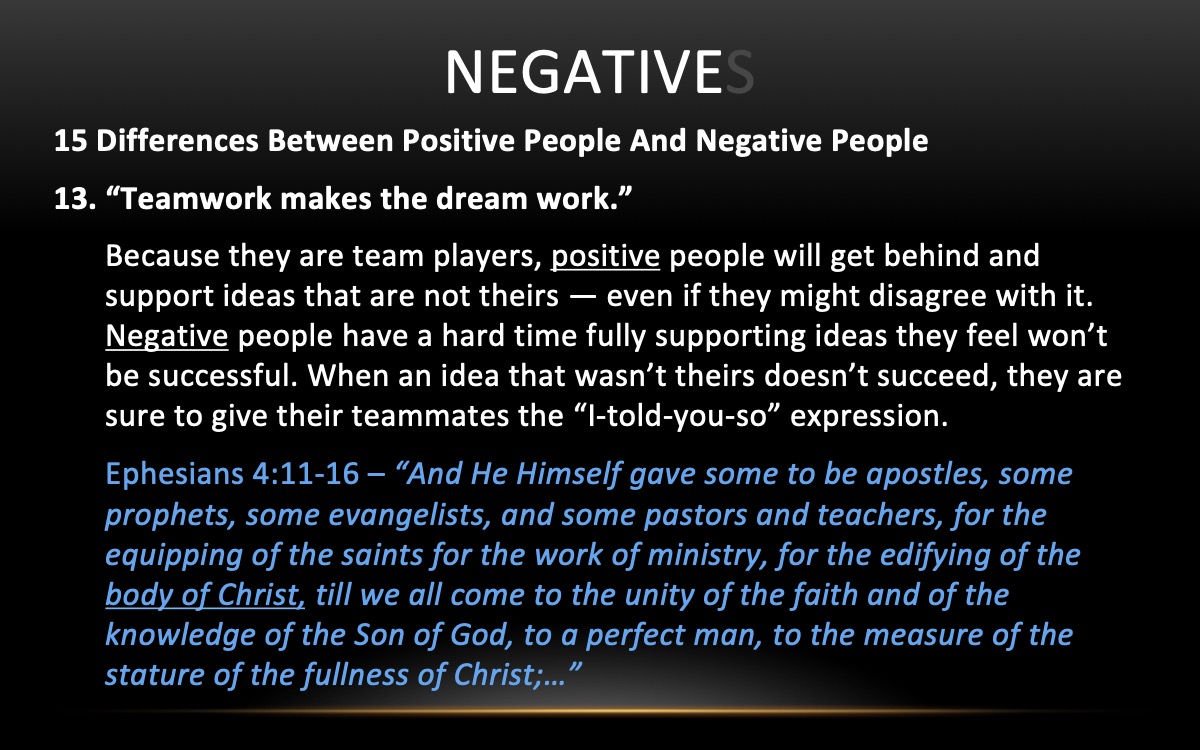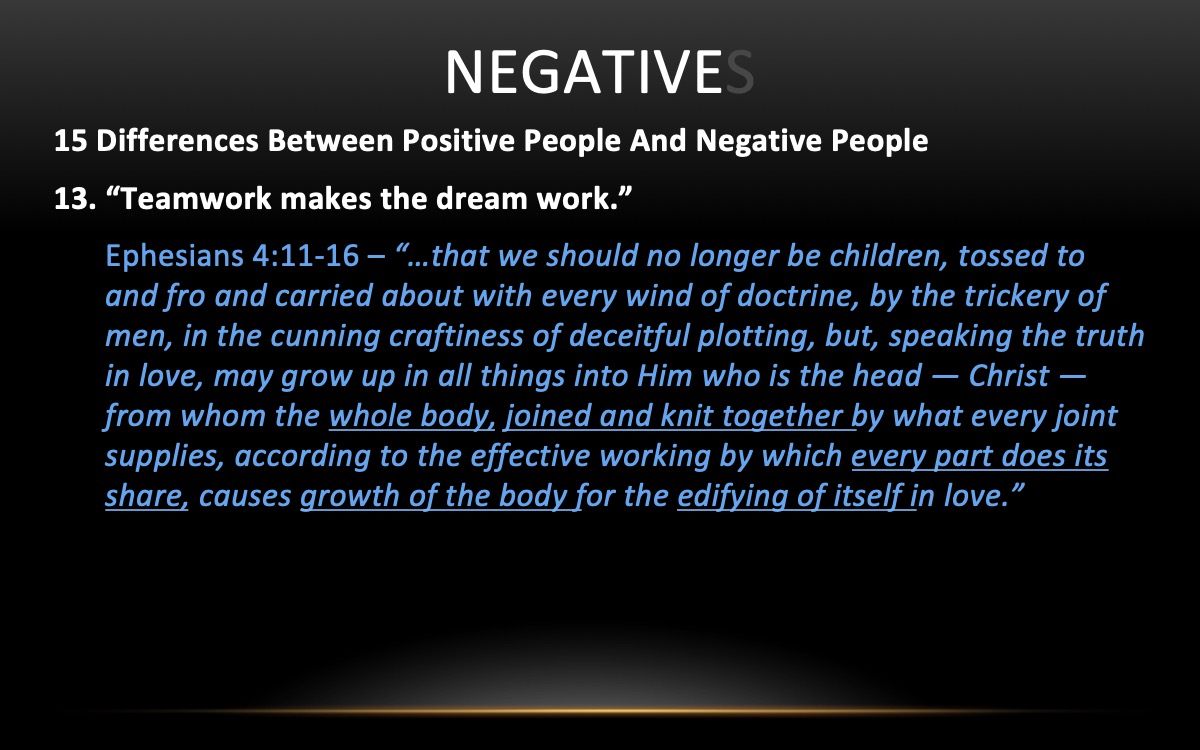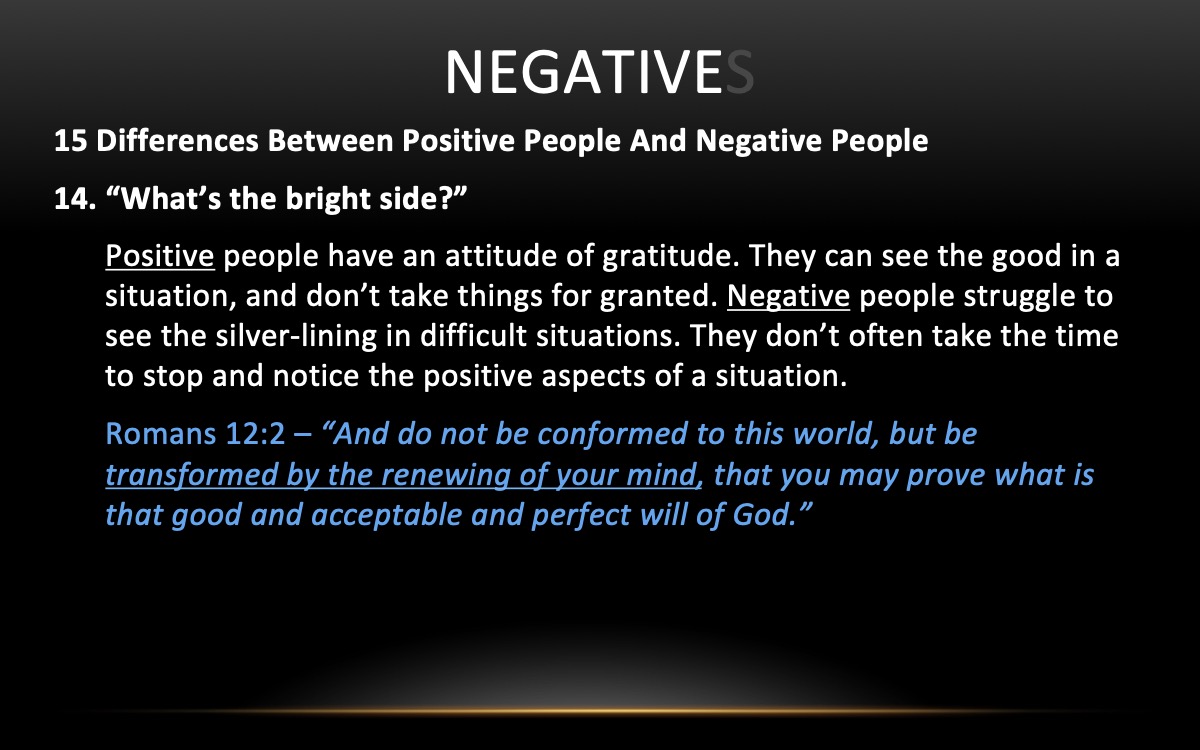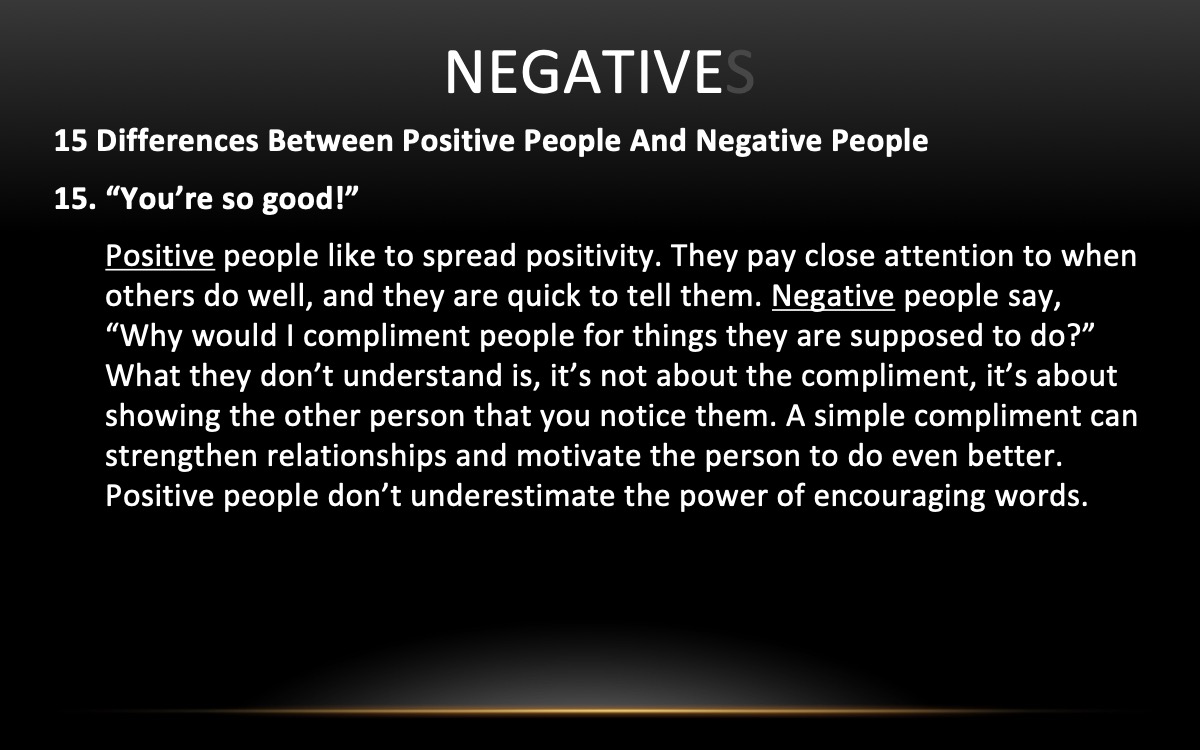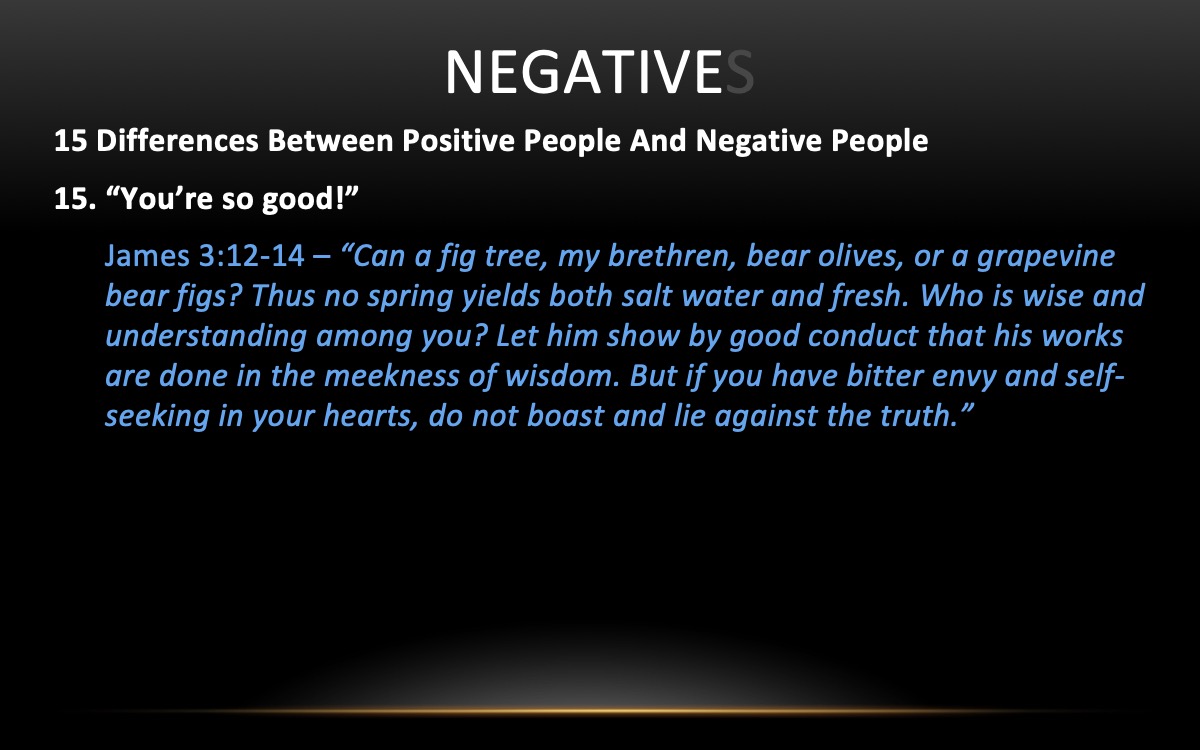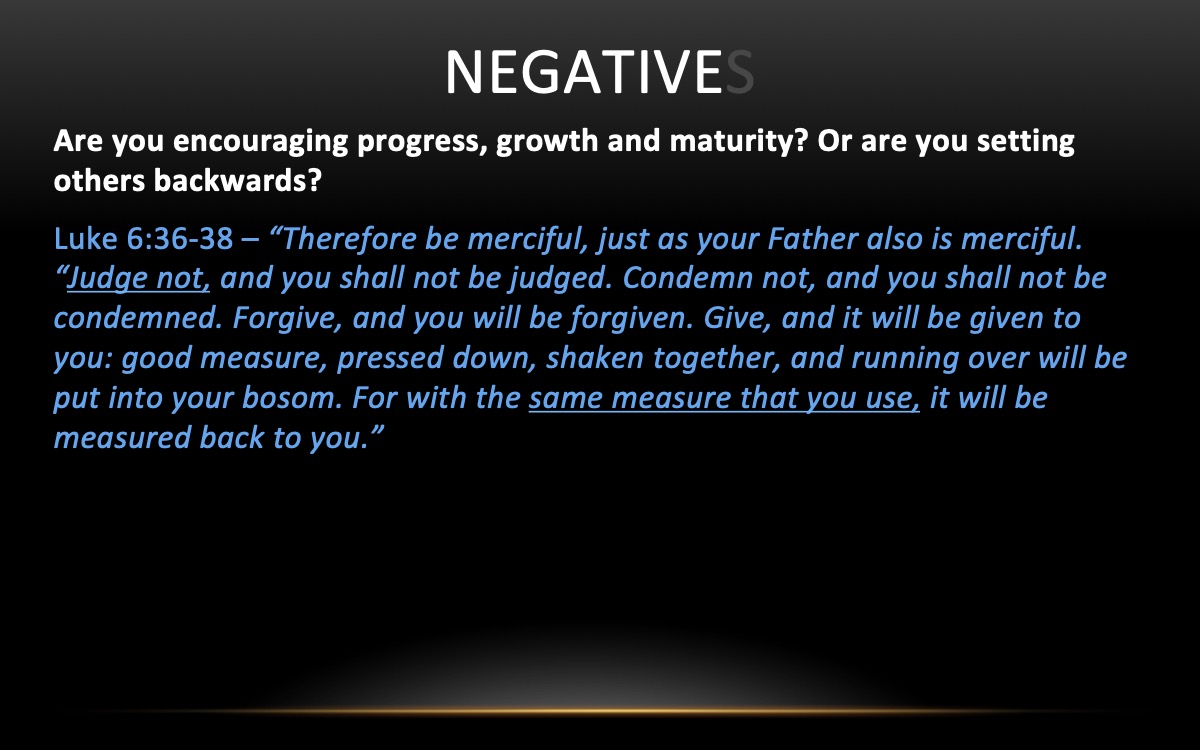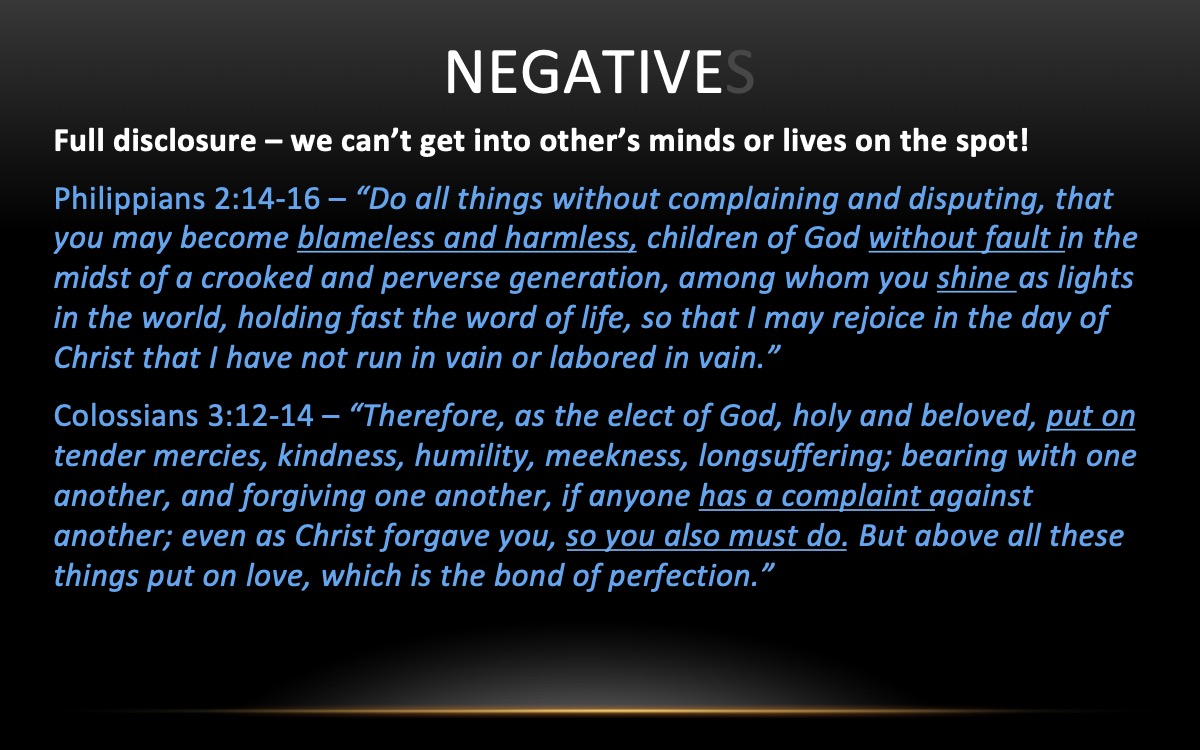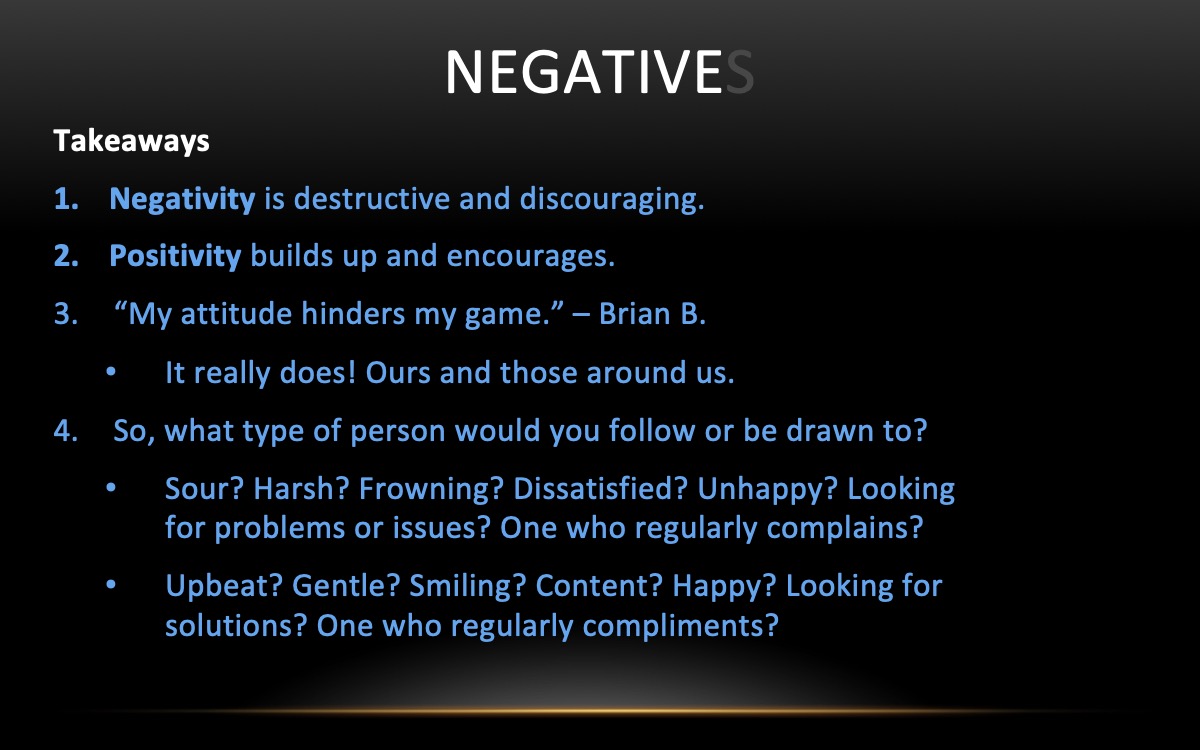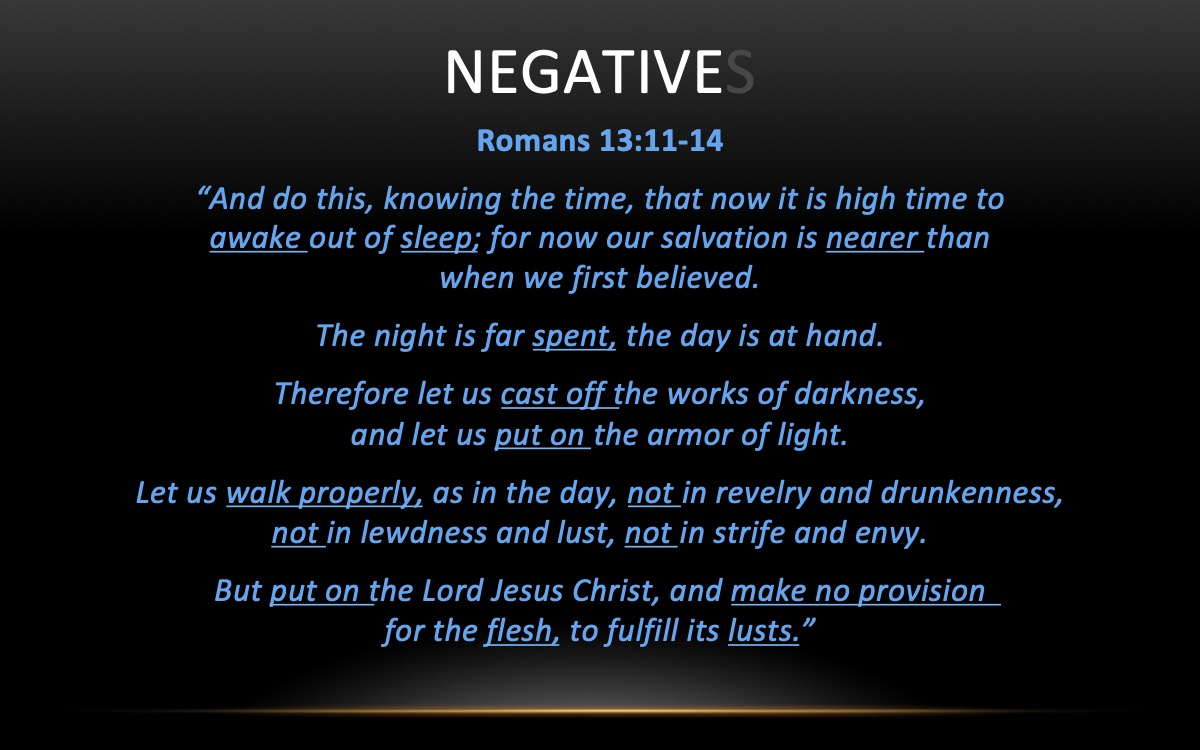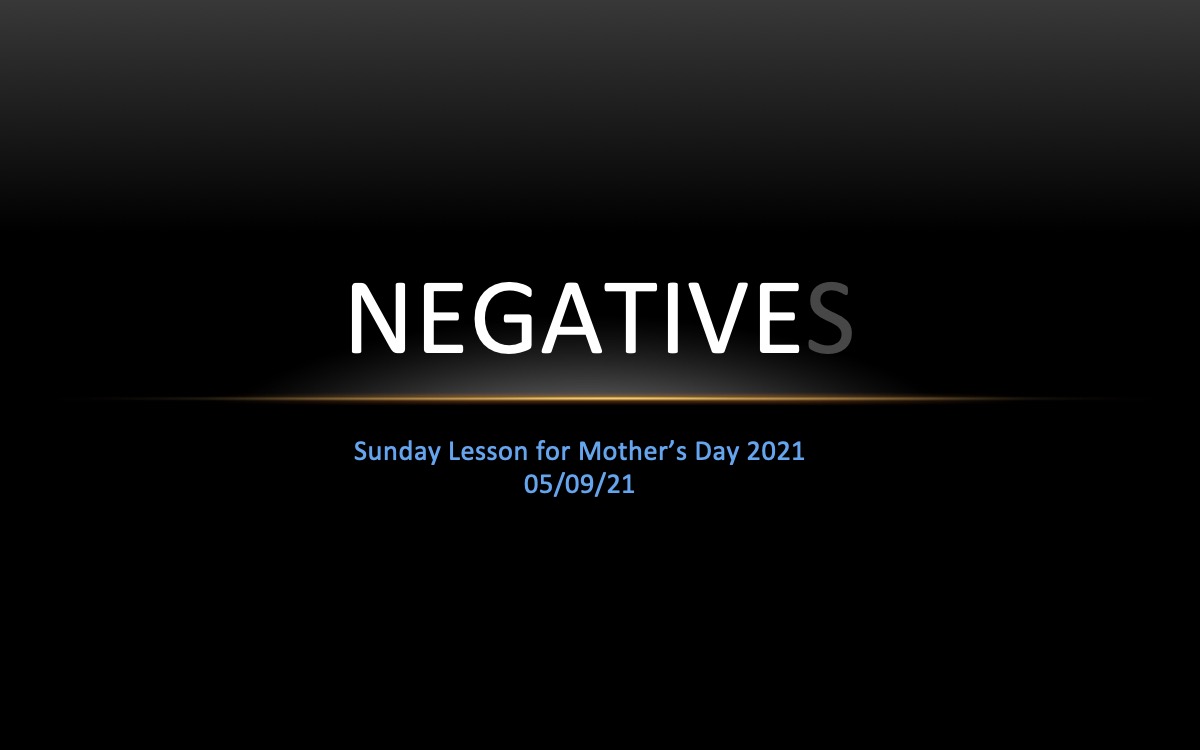
Today Roger, Jr. shared a lesson on “Negative(s)” noting how often many people in our lives – sometimes even us – are negative about far too many things.
The lesson begins by taking a look at 7 definitions of what “negative” or “negativity” encompasses. Then Roger switches to looking at synonyms and antonyms of “Negative” followed by a list of things we would see as very negative even if the object was stunning.
Next, Roger contrasts negativism with positivism and shows why one is not good and the other is (if only we could remember that).
He then goes back to look at Genesis 1:2 to see just what negative space there was when God made the positives.
After this Roger focuses on an article from lifehack.org that does a superb job at comparing positive and negative people. After each of the 15 Differences Between Positive and Negative People in the article, Roger inserts a scripture to remind us how we need to incorporate that into our lives spiritually.
The list includes the following:
- “Failure is part of learning.”
- “I can do hard things.”
- “I always give my best.”
- “She is inspiring!”
- “What can I do better?”
- “I give power to what I focus on.”
- “People can change.”
- “I still have a lot to learn.”
- “Let’s go big!”
- “Have you heard about [insert name]?”
- “I am my own worst enemy or best friend.”
- “What is my body saying?”
- “Teamwork makes the dream work.”
- “What’s the bright side?”
- “You’re so good!”
After the list and passages above, Roger asks himself and those in the audience if they are encouraging progress, growth, and maturity? Or are we setting others backward?
As he closes, Roger reminds all of us that we can’t see into the minds or circumstances of others. So sometimes they just need so positivity to recover or settle, negativity may be the last thing they need … ever!
Roger shares some takeaways then he closes with a reading from Romans 13:11-14.
How do you react to others? Positively or negatively? How do you want to be treated — even when you mess up? I think we all want to be treated positively. So let’s not forget that when we deal with and work with others.
A recording of Roger’s lesson is below, along with slides from his PowerPoint lesson.

